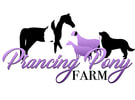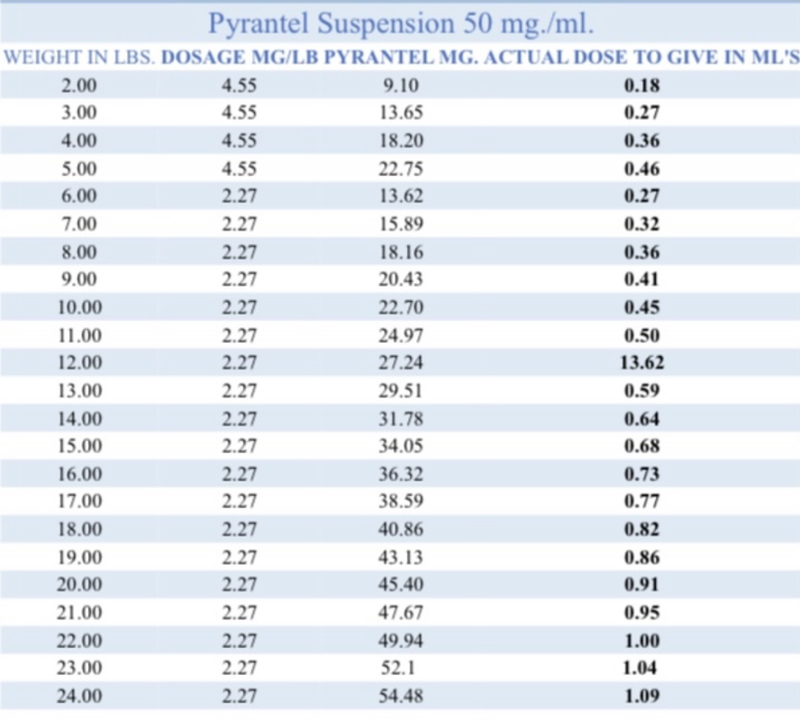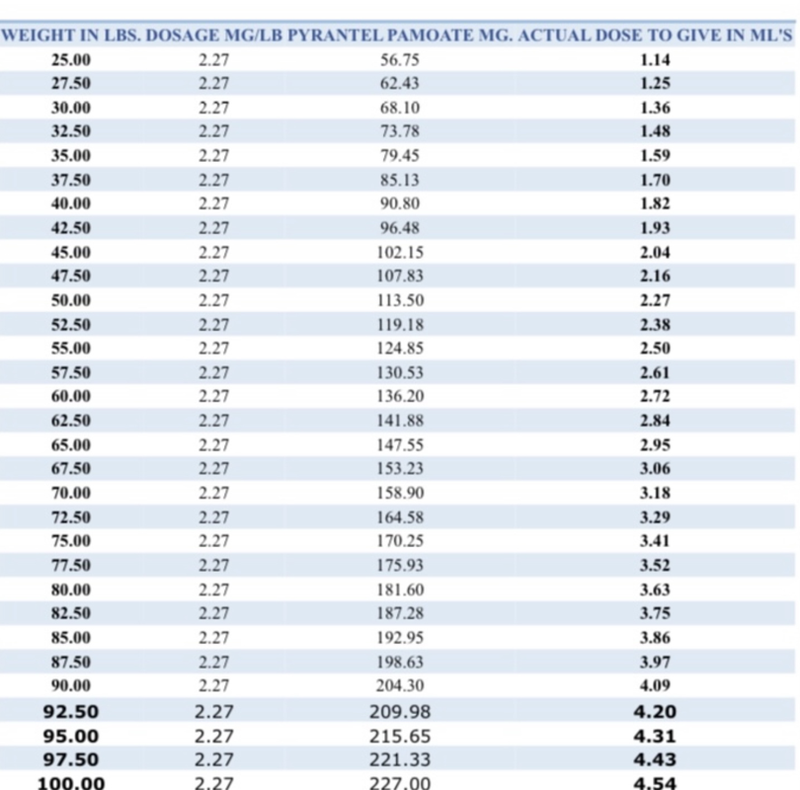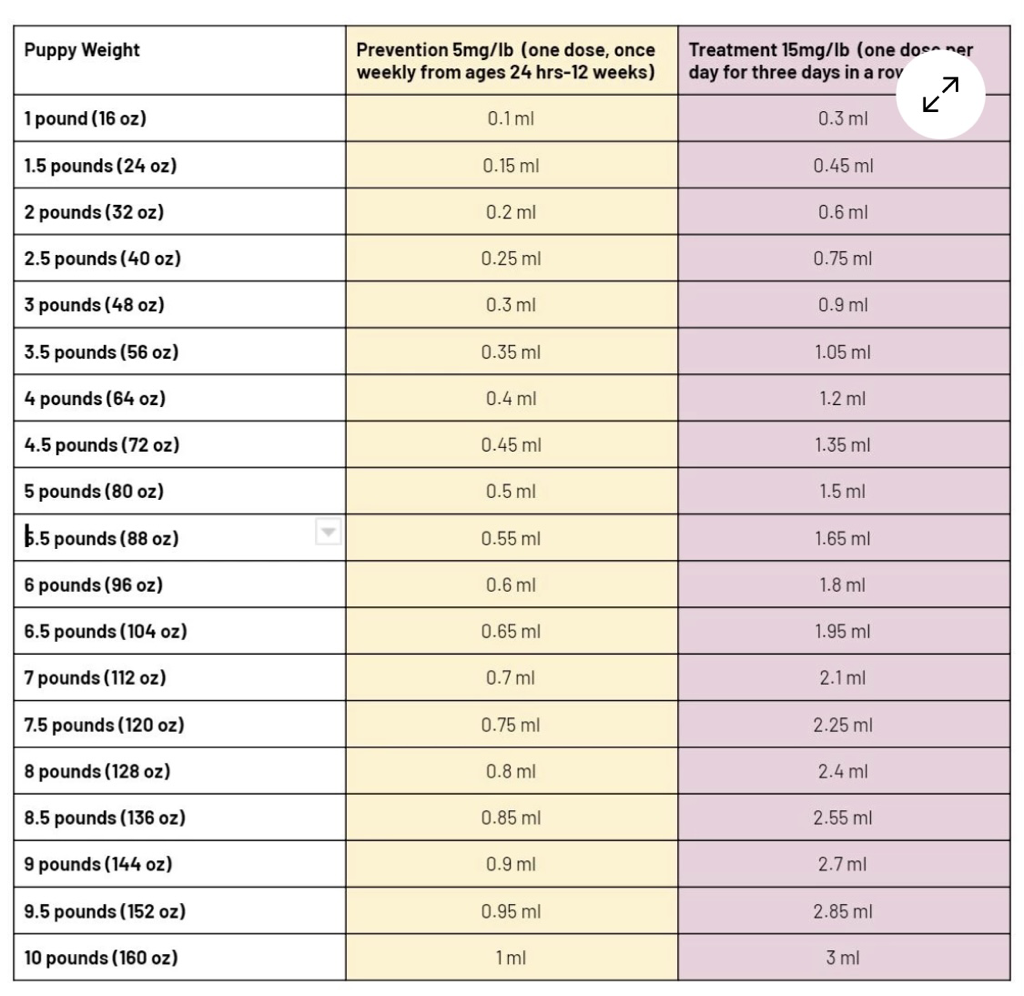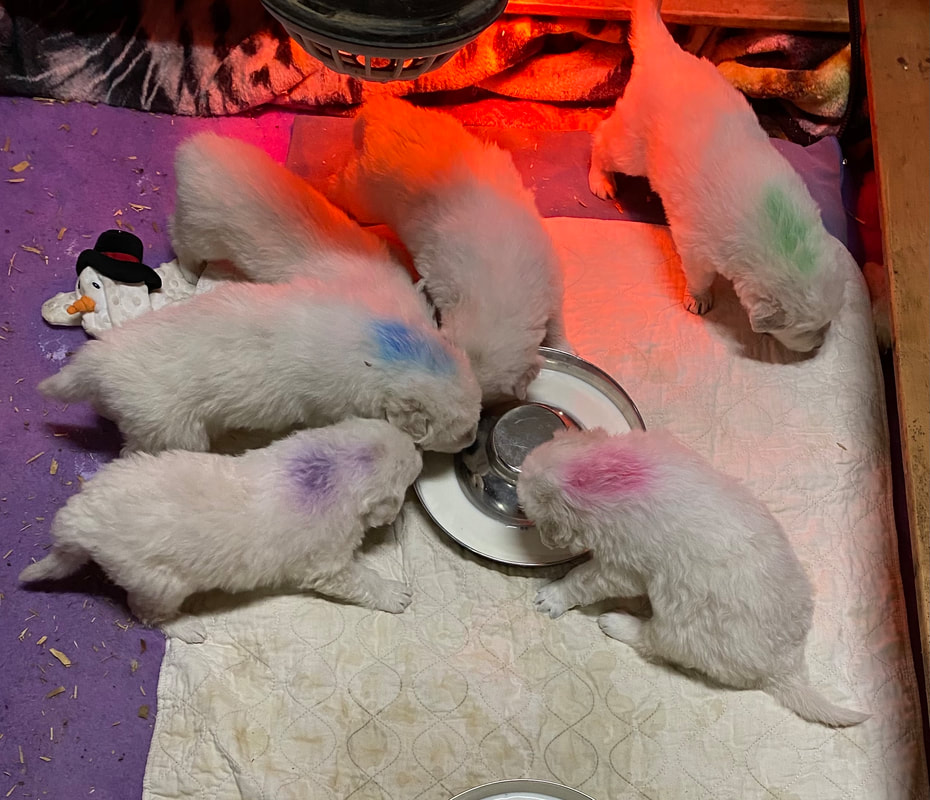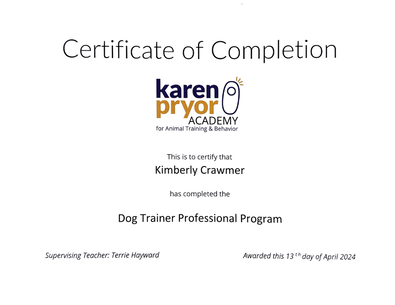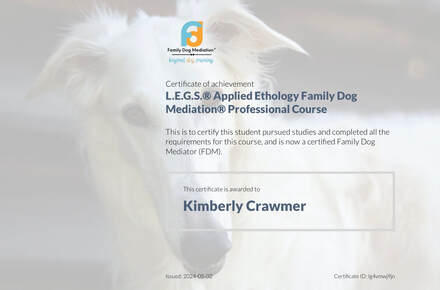Our Vaccination and Parasite Control Protocol for Our Maremma Puppies
Deworming, Giardia and Coccidiosis
Parasite control is very important in puppies, particularly puppies that spend any time outdoors or whose mothers live outdoors or go outside a lot, such as LGD puppies. They can get parasites directly from their mother via the placenta or from her milk, or some types of parasites, such as giardia, can be brought in on her fur after she goes outdoors, especially if she spends any time in ponds, puddles or other wet areas. Puppies who are heavily infested with parasites sometimes have poor weight gain, rough coats, failure to thrive, diarrhea (often bloody) and dehydration. Certain types of parasites such as giardia and coccidiosis are particularly dangerous and can mimic parvoviruses in the severity of their symptoms.
You can lose puppies quickly from these side effects so the best way to prevent problems is to start a very strict parasite control program beginning at 2 weeks old (sooner for coccidiosis) and stick with it until the puppies are past the critical stage. Below is the parasite control program we use, with links to recommended products. If you are a breeder or puppy owner you can follow this protocol with your puppies but we suggest discussing things with your veterinarian first. We are not veterinarians and are not giving medical advice; only sharing what we do.
You can lose puppies quickly from these side effects so the best way to prevent problems is to start a very strict parasite control program beginning at 2 weeks old (sooner for coccidiosis) and stick with it until the puppies are past the critical stage. Below is the parasite control program we use, with links to recommended products. If you are a breeder or puppy owner you can follow this protocol with your puppies but we suggest discussing things with your veterinarian first. We are not veterinarians and are not giving medical advice; only sharing what we do.
First you’ll need to weigh your puppy because the dosage is very important. Below are the scales we use for various ages.
|
|
|
All products can be administered with with 1, 3 or 5 ml luer slip syringes. Use the 1 ml syringe for puppies and dogs under 22 lbs, the 3 ml for puppies and dogs 22-65 lbs and the 5 ml for larger pups and dogs.
|
|
|
|
Ideally you should also treat the puppies’ mom 10 days before she whelps and whenever you treat the puppies. We do this and have found that being diligent in treating mom really helps keep the puppies parasite free.
Intestinal Worms: Roundworms, Hookworms, Whipworms, Tapeworms
Puppies should be dewormed starting at 2 weeks old repeating every 2 weeks until 2 months old, then once a month until 6 months old. So deworm at 2, 4, 6, 8, 12 weeks, then 4, 5 & 6 months. The drug used depends on the age and the type of parasite they have or are at risk for.
Roundworms & Hookworms
|
|
|
We treat at 2 & 4 weeks with Pyrantol Pamoate 50 mg/ml suspension. This is the same ingredient in Nemex 2 canine dewormer, only we use the human version, purchased at Amazon, because it’s much cheaper. It comes in a couple of different sizes and you don’t need a lot, so choose the size that works best for you. You administer it with 1, 3 or 5 ml syringes. Use the 1 ml syringe for puppies and dogs under 22 lbs, the 3 ml for puppies and dogs 22-65 lbs and the 10 ml for larger pups and dogs..
Dosage Charts for Dogs & Puppies - Pyrantol Pamoate 50 MG/ML Suspension
Dose at 4.55 mg per lb for pups under 6 lbs and 2.27 mg per lb for pups 6 lbs and up. See dosing charts below.
Six Weeks and Up - Roundworms, Hookworks, Whipworms, Tapeworms and Giardia
Safeguard 10% Fenbendazole Goat Dewormer - 1 ML per 5 Lbs Body Weight
Starting at 6 weeks we switch to Safeguard 10% Fenbendazole Goat Dewormer to cover Giardia and tapeworms in addition to other intestinal worms. (If we suspect a Giardia problem we will start the Fenbendazole at 4 weeks.) This is given at the rate of 1 ML per 5 lbs, for 3 days in a row for worms only or 5 days in a row to cover Giardia, as well. Repeat weekly at 6 & 8 weeks, then monthly until 6 months. Personally we usually continue weekly treatments until 10 or 12 weeks, just because puppies are more at risk when there are more of them living together and living outdoors. We feel it’s better to stay on top of things. Some people recommend treating only for 3 days for giardia and others say 9 days if they have a known infection. We generally do 5 days in a row, every 2 weeks.
We buy the Safeguard in 1000 ML bottles but the 125 ML Safeguard is probably enough unless you’re a breeder. you You’ll need 10 ML syringes or a goat dosing syringe to dose bigger puppies and dogs.
Very resistant cases of Giardia can be given Metronidazole, instead of or in addition to Fenbendazole. This is a prescription drug so you’ll need to get it from your veterinarian. We do keep it on hand and use it for resistant cases, in addition to the Safeguard. Oregano Oil is said to prevent Giardia but we haven’t tried that.
We buy the Safeguard in 1000 ML bottles but the 125 ML Safeguard is probably enough unless you’re a breeder. you You’ll need 10 ML syringes or a goat dosing syringe to dose bigger puppies and dogs.
Very resistant cases of Giardia can be given Metronidazole, instead of or in addition to Fenbendazole. This is a prescription drug so you’ll need to get it from your veterinarian. We do keep it on hand and use it for resistant cases, in addition to the Safeguard. Oregano Oil is said to prevent Giardia but we haven’t tried that.
|
|
|
|
|
Coccidiosis
|
Coccidiosis is a highly dangerous intestinal infection caused by the coccidian protozoa. It can mimic canine parvovirus with severe diarrhea (sometimes bloody), vomiting, lethargy, anorexia, dehydration and the puppy generally being depressed and sickly. Puppies can die quickly from dehydration and malnourishment if not treated immediately. Really bad cases may require subcutaneous fluids, prescription medications and a special diet. It’s best to prevent coccidiosis before it gets a strangle hold on your puppies or to treat it aggressively at the first symptoms.
You can get prescription medications from your veterinarian to treat Coccidiosis or you can use Toltrazuril 5% Suspension from Horseprerace.com. This is the drug we use to treat and prevent coccidiosis in both puppies and goats. It’s very expensive but works very well, so it’s worth it. |
Toltrazuril Dosage 5% Suspension |
FYI, puppies don’t get coccidiosis from other species, because the protozoa are host specific, but if you have goats, chickens etc and have a coccidiosis problem with them you’ll likely also have issues with puppies, simply because the conditions that favor the Protozoa are the same regardless of species.
The Toltrazuril dosage for goats is 1 ML per 5 lbs, but for for puppies the dosage is different and varies, depending on if you’re using it as preventative or a treatment. For prevention it’s 5 mg per lb, given once. Most people recommend the first dose at 4 days and then every 2 weeks from 2-14 weeks, but if you have a severe problem you can dose weekly.
To treat Coccidiosis infections (not just prevention) you triple the dosage to 15 mg per lb and treat for 5 days in a row.
The Toltrazuril dosage for goats is 1 ML per 5 lbs, but for for puppies the dosage is different and varies, depending on if you’re using it as preventative or a treatment. For prevention it’s 5 mg per lb, given once. Most people recommend the first dose at 4 days and then every 2 weeks from 2-14 weeks, but if you have a severe problem you can dose weekly.
To treat Coccidiosis infections (not just prevention) you triple the dosage to 15 mg per lb and treat for 5 days in a row.
*Beginning with our October 2021 litter we started a new protocol for Coccidiosis prevention. We use a product called Cocciguard which we get from Revival Animal Health. This is a powdered coccidiostat designed for livestock. We mix it into our puppy food at the rate of about 4 cups per 45 lb bag of food. We feed this to our females while they are pregnant or nursing, and when the puppies start solid food they get this same product in their food. We also add Doc Roy’s GI Synbiotics to the food at about 2 cups per 45 lb bag of dog food. We buy the 10 lb bags of Cocciguard and 25 lb bags of Doc Roy’s and pre-mix it into the puppy food bags as we fill the storage containers.
The Cocciguard is NOT a Coccidiosis treatment. It’s only a preventative. If we get an outbreak of Coccidiosis we still treat with Toltrazuril, but we have found that by using the Cocciguard it keeps the parasite at bay and we don’t need to treat. This stuff is amazing and we will definitely continue using it!
The Cocciguard is NOT a Coccidiosis treatment. It’s only a preventative. If we get an outbreak of Coccidiosis we still treat with Toltrazuril, but we have found that by using the Cocciguard it keeps the parasite at bay and we don’t need to treat. This stuff is amazing and we will definitely continue using it!
Probiotics to Restore Healthy Gut Flora
You should always use probiotics after treating for parasites or any time a puppy has digestive issues. Here are some we keep on hand and use:
|
|
|
|
|
